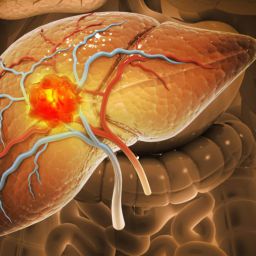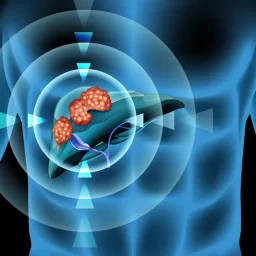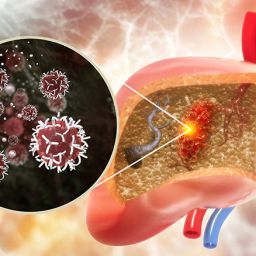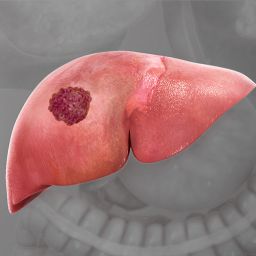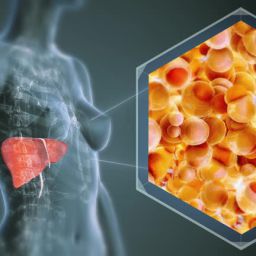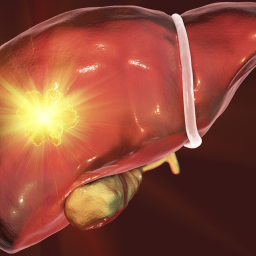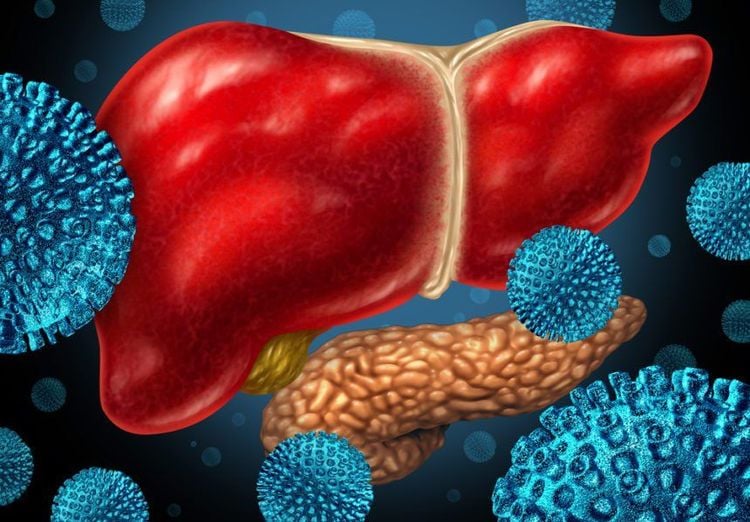
1. The Psychological Impact of a Liver Cancer Diagnosis
A liver cancer diagnosis can be overwhelming, bringing a range of emotions such as shock, disbelief, fear, anger, sadness, and confusion. These emotions may vary based on the stage of cancer, the patient’s prior health conditions, and the available treatment options. For many, the uncertainty about the future can cause anxiety, while concerns about pain, prognosis, and quality of life can trigger depression.
Some of the psychological responses commonly experienced by individuals diagnosed with liver cancer include:
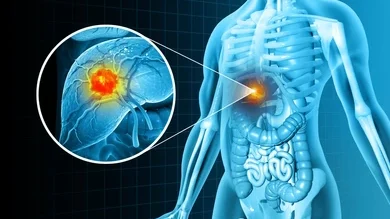
- Fear of death and mortality: A diagnosis of cancer, particularly liver cancer, which is often diagnosed in advanced stages, can cause profound fear about survival and the future.
- Anxiety and uncertainty: Patients often feel uncertain about their prognosis, treatment options, and potential side effects of therapies.
- Depression: Feelings of sadness, hopelessness, and loss of interest in life activities are common in those dealing with a cancer diagnosis.
- Social isolation: Patients may feel disconnected from their friends and family, either due to the stigma associated with cancer or because they do not want to burden loved ones with their fears and concerns.
- Guilt: Some individuals may experience guilt, believing that they somehow caused their cancer (e.g., due to alcohol consumption, smoking, or diet).
It’s important to recognize that these emotional responses are normal, and seeking psychological support can help alleviate some of the distress associated with the diagnosis and treatment process.
2. Types of Psychological Support
Psychological support for liver cancer patients can take many forms. This support can come from mental health professionals, support groups, family and friends, or even self-help practices. The goal is to help individuals navigate their emotional challenges, improve their mental well-being, and develop coping strategies to manage the stresses associated with cancer.
2.1 Individual Therapy or Counseling
One of the most effective ways to address the emotional challenges of a liver cancer diagnosis is through individual therapy or counseling with a licensed psychologist or counselor. Therapists are trained to help patients cope with their feelings, process the emotional impact of their diagnosis, and develop healthy coping mechanisms.
Therapy options may include:
- Cognitive-behavioral therapy (CBT): CBT focuses on identifying negative thought patterns and replacing them with more positive, realistic thoughts. It can help patients manage anxiety, depression, and stress by changing the way they think about their situation.
- Psychodynamic therapy: This type of therapy explores the unconscious thoughts and feelings that may be contributing to emotional distress. Psychodynamic therapy can be helpful in understanding how past experiences influence current emotional responses to illness.
- Acceptance and commitment therapy (ACT): ACT helps individuals accept their feelings rather than struggle against them. It focuses on mindfulness and living in a way that aligns with one’s values, despite the challenges posed by illness.
- Mindfulness-based therapy: Mindfulness techniques are used to help patients stay grounded in the present moment, which can help reduce anxiety and depression.
Therapy provides a safe and private space where individuals can express their emotions without judgment. It is important for patients to openly discuss their feelings with a therapist to help process their emotions and gain clarity about how they can move forward.
2.2 Group Therapy and Support Groups
Group therapy or support groups provide an opportunity for patients to connect with others who are facing similar challenges. These groups can be an invaluable source of emotional support and validation. Many cancer centers offer support groups specifically for people diagnosed with liver cancer, where patients can share experiences, offer advice, and receive emotional comfort from peers who understand their situation.
Support groups may focus on:
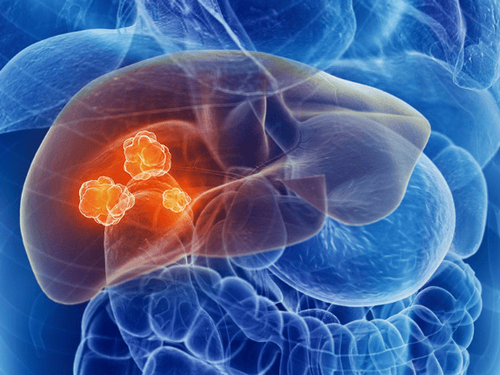
- Emotional support: Sharing personal experiences and receiving support from others who have been through similar journeys can help alleviate feelings of isolation and loneliness.
- Coping strategies: Support groups provide a forum for learning new ways of coping with stress, anxiety, and depression. Participants can share what has worked for them and gain insight into strategies that may be helpful.
- Education and resources: Many support groups also provide information on treatments, side effects, and lifestyle changes, which can empower patients to make informed decisions about their care.
Support groups can be in-person or virtual, allowing patients to connect with others regardless of location. Many cancer organizations, hospitals, and even online platforms offer various support groups for cancer patients.
2.3 Family Therapy and Support
A cancer diagnosis doesn’t only affect the patient; it impacts family members as well. Family therapy can help patients and their loved ones navigate the emotional strain of cancer together. It is important for family members to receive support so they can understand the psychological challenges the patient may be facing and learn how to provide effective emotional support.
Family therapy can:
- Facilitate open communication between family members, helping to alleviate misunderstandings or emotional barriers.
- Provide strategies for caregivers to manage their own stress and emotions while caring for their loved ones.
- Help families process grief and uncertainty, especially if the cancer is advanced.
Providing emotional support for family members helps improve the overall emotional well-being of the patient, as they can feel more comfortable knowing their loved ones are also receiving the help they need.
2.4 Psychosocial Oncology Services
Psychosocial oncology services are specialized resources within cancer treatment centers designed to address the emotional and psychological needs of cancer patients. These services often include social workers, psychologists, counselors, and chaplains who are trained to assist patients and families in coping with the psychological challenges of cancer.
These services may include:
- Psychological counseling: Focused on addressing the emotional aspects of living with cancer.
- Social support services: Connecting patients with community resources, financial assistance programs, and other support services.
- Spiritual support: For those who find comfort in spirituality, chaplaincy services can offer support tailored to the patient’s religious or spiritual needs.
Psychosocial oncology services are an excellent resource for those who feel overwhelmed by the complexities of cancer treatment, diagnosis, and emotional challenges.
2.5 Self-Care Practices and Mind-Body Therapies
In addition to professional support, self-care practices and mind-body therapies can play an important role in maintaining emotional health. These practices help individuals manage stress, reduce anxiety, and enhance their sense of well-being.
Popular mind-body therapies include:
- Meditation: Practicing mindfulness meditation can help calm the mind and promote relaxation.
- Yoga: Gentle yoga can improve physical well-being while reducing stress and anxiety.
- Art therapy: For individuals who may not feel comfortable talking about their feelings, art therapy provides an outlet for expression.
- Music therapy: Listening to or creating music can have a calming effect and promote emotional expression.
Self-care practices are not a substitute for professional therapy, but they can be valuable tools in conjunction with other forms of support to manage stress and promote a sense of peace.
3. Addressing Specific Concerns in Liver Cancer Patients
Liver cancer patients may face unique challenges due to the nature of the disease and its treatment. The liver is a critical organ, and many treatments for liver cancer can result in significant changes to the patient’s physical appearance, energy levels, and quality of life.
Some specific psychological concerns for liver cancer patients include:
- Body image: Patients who undergo surgery or other treatments like chemotherapy or radiation may experience changes to their appearance or physical function, leading to body image concerns.
- Pain management: Chronic pain or the anticipation of pain can lead to increased anxiety and distress. Addressing pain through a combination of physical and emotional support is critical.
- Financial stress: The financial burden of cancer treatment can add significant stress to an already difficult situation. Financial counseling and support can help patients manage these concerns.
- Fear of recurrence: Many liver cancer patients fear that the cancer will return, which can lead to chronic anxiety. Psychological support can help patients address these fears and develop strategies to cope with uncertainty.
A liver cancer diagnosis can take an immense psychological toll on patients and their families. It is essential to recognize that emotional and psychological support plays a crucial role in the overall treatment plan. By seeking professional help, connecting with support groups, and practicing self-care, individuals diagnosed with liver cancer can build emotional resilience and improve their quality of life during this challenging journey.
Mental health is just as important as physical health when it comes to cancer treatment. With the right psychological support, patients can manage their emotional struggles and improve their ability to cope with the challenges posed by liver cancer. Support is available in many forms, and finding the right type of care can help patients navigate the emotional journey of cancer with greater strength and clarity.

